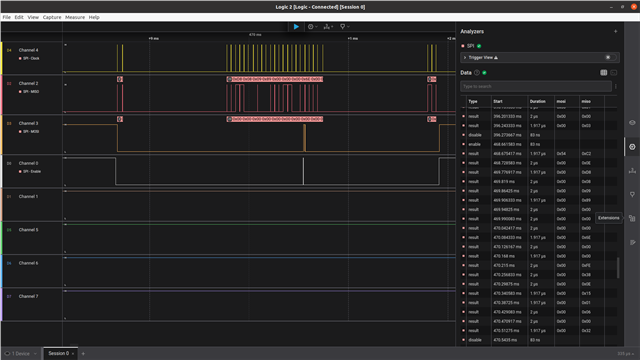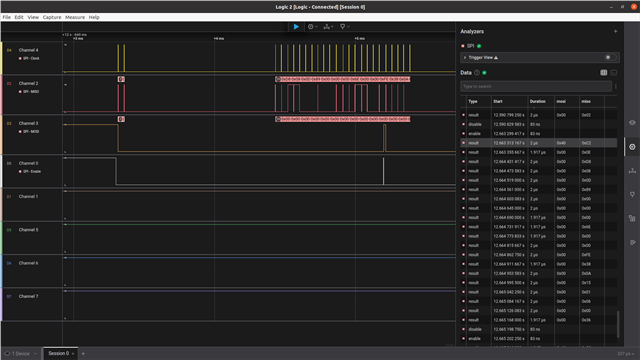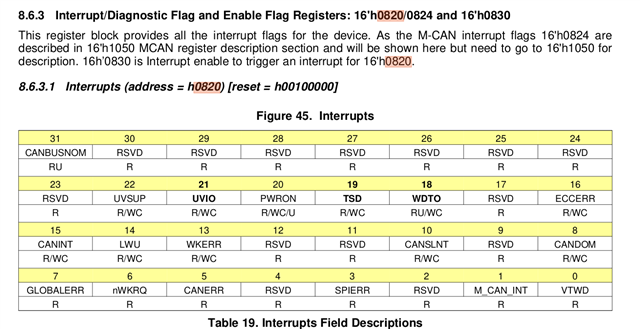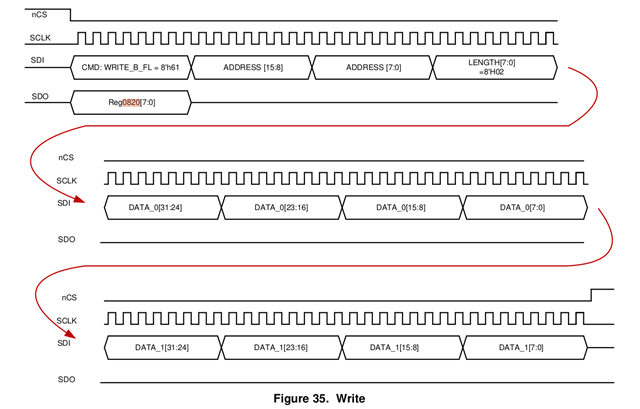Other Parts Discussed in Thread: TCAN4550,
Tool/software:
We are using several TCAN4550 chips, and most of them work fine. However, one of the units is behaving abnormally.
Please help us investigate the possible cause.
At power-on, the CAN communication works normally. But after a period of operation, it stops transmitting CAN messages.
We traced the SPI communication:
-
MISO continues to provide normal output.
-
MOSI, when the CAN transmission fails, shows two different behaviors:
-
At first, it still responds normally to SPI communication — no abnormalities observed.
-
Later, even the SPI responses become abnormal, with MOSI returning
0xA0or0x40.
-
normal:

abnormal:

Could you also help confirm whether my interpretation of the SPI response is correct?
When decoding the response from MOSI, it appears to represent 0x0820, as shown in the image below.
From the TCAN4550 datasheet, 0xA0 indicates SPIERR | M_CAN_INT | VTWD.
Under what conditions would such a response be triggered?


